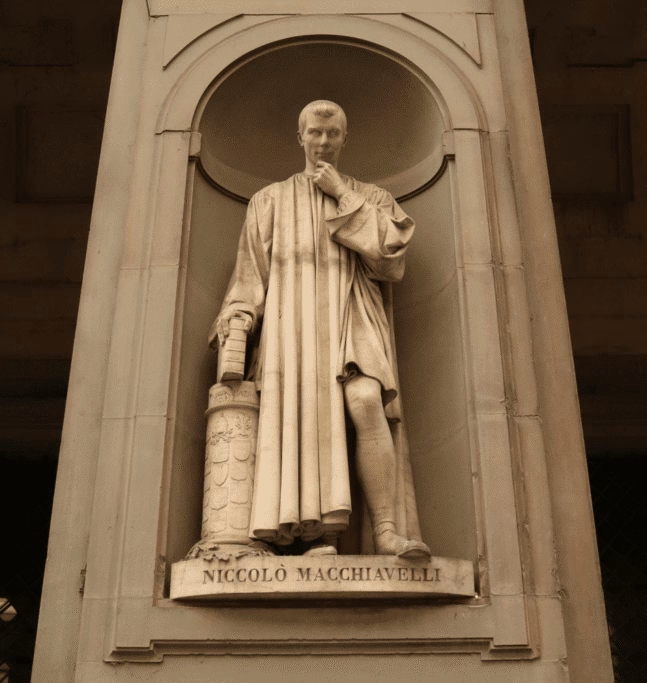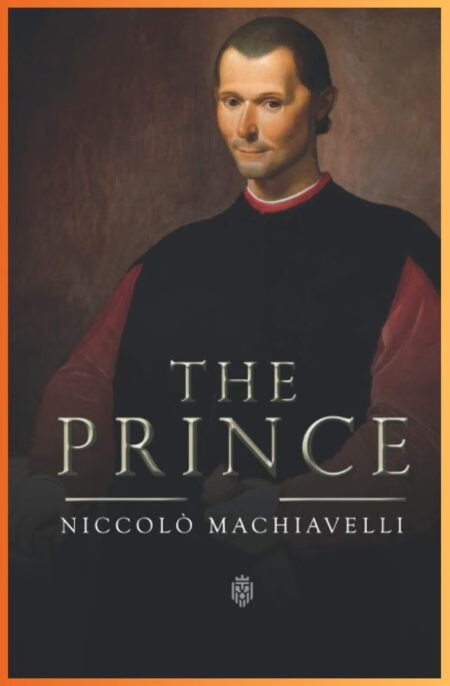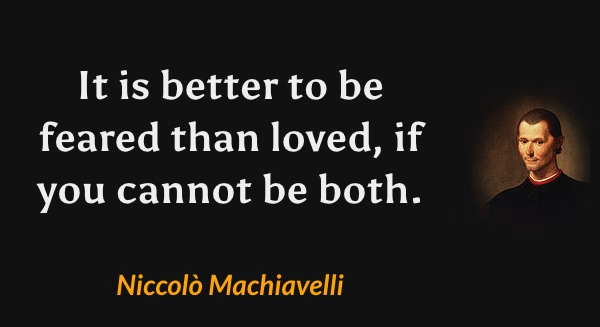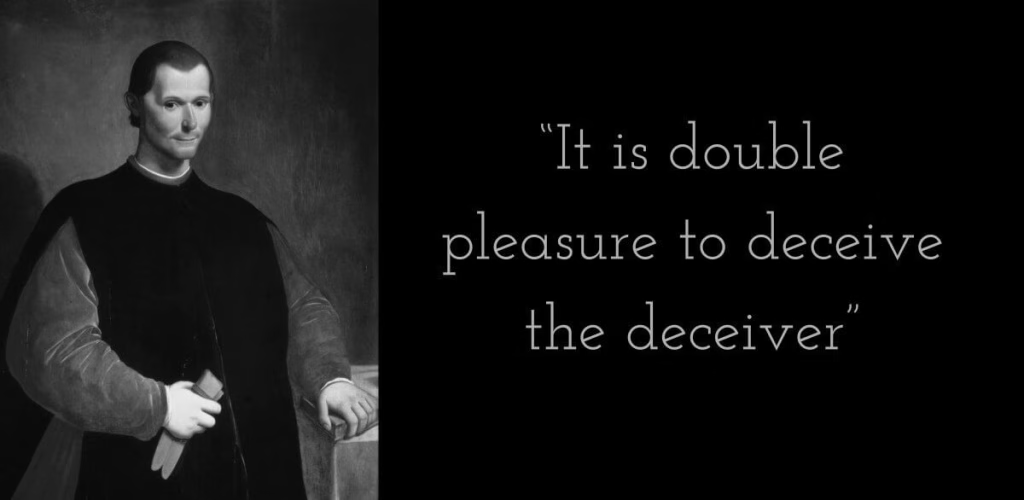A Mind Sharpened by Chaos
Born in Florence in 1469, Niccolò Machiavelli came of age in a world that devoured idealists. Italy wasn’t a country yet,it was a battlefield of city-states, shifting alliances, and backstabbing elites. From this fractured crucible emerged a man who didn’t romanticize power. He studied it like a butcher studies bone.
As a diplomat for the Florentine Republic, Machiavelli observed the cruel logic of politics firsthand. He saw what worked. Mercy wasn’t it.
He met Cesare Borgia, the ruthless son of Pope Alexander VI. Borgia ruled with brilliance and blood. Machiavelli admired him. Not for his morals, but for his effectiveness.

The Prince
In 1513, stripped of office and exiled after the Medici returned to power, Machiavelli wrote “The Prince“. It was not a guide to virtue.
It was a guide to survival.
He advised rulers to be feared, not loved. To lie, if necessary. To kill, if useful. To manipulate, always. The world, he argued, was not ruled by morals but by outcomes.
Machiavelli believed that, for a ruler, it was better to be widely feared than to be greatly loved; a loved ruler retains authority by obligation, while a feared leader rules by fear of punishment. As a political theorist, Machiavelli emphasized the “necessity” for the methodical exercise of brute force or deceit, including extermination of entire noble families, to head off any chance of a challenge to one’s authority.
The Prince wasn’t published until after his death. But once it was, it spread like wildfire, and with it, a new definition of leadership: ruthless pragmatism.
A new word was born from his name: Machiavellian.

Demonized by the Decent
Machiavelli wasn’t evil. He was observant. Yet he became the villain of political thought. The Church banned his writings. Moralists loathed him. The name Machiavelli became a whisper of danger, a shorthand for manipulation without conscience.
What they missed was his bitterness. The Prince was written by a man broken by politics, not drunk on it. He wanted to return to public life. The book was a job application.
And still, centuries later, power-hungry leaders,from Napoleon to Nixon,would echo his logic.

Niccolo Machiavelli died in 1527, poor and forgotten. But his ideas would never be buried.
Today, his fingerprints are found in boardrooms, war rooms, and campaign trails. He didn’t create evil – he revealed how it moves in daylight. His brilliance was his brutality and said the quiet part out loud.
He was a mirror that showed the world what leadership often looks like when stripped of illusion: cold, clever, and calculating.

Machiavelli is generally seen as being critical of Christianity as it existed in his time, specifically its effect upon politics and humanity in general. In his opinion, the Christianity that the Church had come to accept allowed practical decisions to be guided too much by imaginary ideals and encouraged people to lazily leave events up to providence or, as he would put it, chance, luck or fortune.
His gift was clarity. His curse was honesty.
